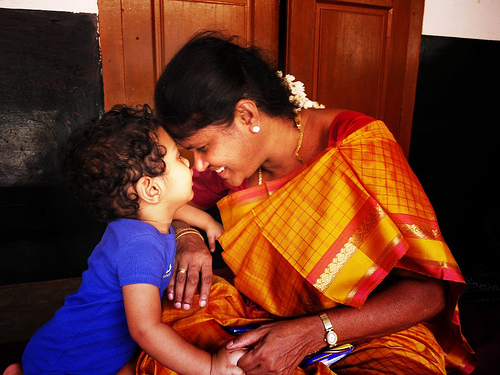So much research has been done about the importance of communication in relationships – be it between spouses, between friends, or between a parent and a child. The last one becomes a little tricky at times mainly because of the generation gap barrier and expectations. Parents, being parents, sometimes assume that they know everything about their child when in fact they may be completely wrong about many things. Communicating with a child usually requires much more listening and less instruction on the parent’s part.

I thought I knew my children reasonably well. We spend a lot of time talking and catching up on the day’s events when we drive to and from classes, as the rest of the day is zapped up by school, classes and homework. Inspired by an article I read recently – Listening to Students by Elena Aguilar – I thought to ask my teen daughter some questions to give me some insight on her thoughts. I was quite dumbfounded by some of her answers.
“What’s your biggest fear?” I asked her, knowing she would say ‘failing a subject’ would be her answer. “I have two big fears – failing in life and losing my loved ones.” I was quite close to the first answer but the second one surprised me. I found out that she still terribly missed her great grandmother who died when she was barely five years old. She’s carried that grief with her all these years and the grief has affected the way she looks at relationships. She often goes into fits of tears when her friends unfriend her on Facebook. It was through this simple means of communication that I found a new direction my parenting had to take – to make her less insecure about people leaving her.
I tried another question, this time on my 19-year-old: “What’s your biggest dream?” I asked. “To work hard to be the best entertainer,” she replied. I gave myself a pat on my back for this one, relieved to know that all the encouragement we have given her has made her want to pursue her ambition with determination.
Why You Need to Listen to Your Child
Listening and talking to your child will not only bring you closer together – it will also give your child more reasons to share life’s little details with you. You will truly appreciate this when your child grows into a teen and adult and still remains comfortable in sharing his or her stories with you without fear. You slowly turn into more of a friend and less of an instructing parent.
We all know that each child is different. Using the same parental skills on all your children is like using one temperature for baking everything. You will have some burnt cookies and some undone cakes. Calm, introverted children need completely different parenting skills compared to active, extrovert children. If you listen to your children’s fears, needs, insecurities and dreams, you will know exactly whom to motivate and whom to build confidence in.
After that day of questions in the car, I looked back at my teaching days and recalled how I wanted to get to know all my students at the beginning of the year so that I could recognize each child’s strong and weak areas. I used to work on each student using the results of the short survey and I also used online tools.
Some students admitted to panic attacks during exams thus forgetting everything, while some wrote of how they had no support at home with regards to homework and some wrote about how lonely they were at home. I was most worried about the lonely ones; they lost track of time completely as they were alone at home and this led to books being left at home, homework not completed and the child not being able to follow lessons. This always resulted in the child losing confidence completely.
10 Questions to Ask Your Child
I thought there should be a similar list of questions a parent can ask his or her child and here are some of the questions:
- What is your biggest fear?
- When was the last time you were really proud of yourself?
- What non-material thing makes you very happy? (You don’t want them picking the i-Pad!)
- If you had three wishes, what would you wish for and why?
- According to you, what makes a good parent? What can I do to become a better parent?
- Tell me about someone you admire and why.
- What is the most difficult thing you have done in your life?
- What are some dreams and ambitions you have that you’re not sure you can achieve?
- What makes you sad/ nervous/ anxious?
- What are some things in your life that you would like to change?
I got to know my children much better after asking them these simple, thought provoking questions. What would you ask them?
at 1:15 AM
A very helpful guideline for parents to follow.
at 2:45 PM
Thank you! :-)
at 5:20 PM
A wonderful article!
I hope it is also read by the people who know nothing but to order their children.
at 2:45 PM
Thank you Mousumi for your kind comments.